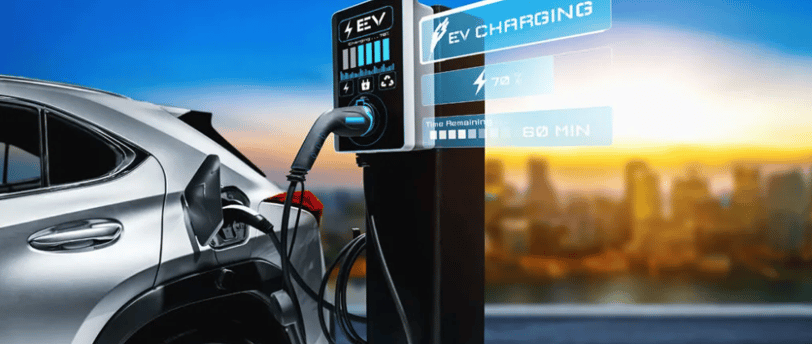Navigating the Future: AI and product management in the e-mobility space
The focus on AI is ever growing and product managers are the modern masters of navigating product discoveries to success. This articles highlights the e-mobility sector and how product managers can bring forth companies to greater height using AI.
kumar vivek
11/29/20233 min read


The global Electric Vehicle (EV) Charging Infrastructure market was valued at US$ 1886.2 million in 2022 and is projected to reach US$ 6039.5 million by 2029, at a CAGR of 18.1% during the forecast period.
As the world pivots towards sustainable energy solutions, the electric vehicle (EV) industry stands at the forefront of this transformation. Amidst the surge in EV adoption, EV charging companies play a pivotal role in ensuring a seamless charging infrastructure. Some companies are leading the EV revolution with a high power charging(HPC) capabilities such as ChargePoint, Tesla, ABB, etc.. while others are also catching up and expanding their presence. However, the journey comes with its own set of challenges that demand adept product management strategies.
Key Challenges I was working on and forsee to evolve in complexities:
Infrastructure Hurdles: Establishing a comprehensive charging network requires overcoming infrastructure challenges, including installation costs, grid limitations, and zoning regulations. How can product managers navigate these hurdles to ensure a widespread and accessible charging network?
According to the (IEA), the global electric car sales surpassed 10 million in 2023, marking a significant milestone in the industry's growth.
User Experience: A positive user experience is critical for EV adoption. From locating charging stations to payment processes, how can product managers enhance user experience and drive customer satisfaction?
Interoperability: The industry grapples with interoperability issues among different charging stations and networks. How can product managers work towards standardization to facilitate a more user-friendly charging ecosystem?
Regulatory Landscape: Evolving regulations can impact the deployment and operation of charging stations. EV industry is still in rapid growth phase with new standardization regulations propping up every year or so. How can product managers stay ahead of regulatory changes to ensure compliance and business continuity?
Some tried solutions PMs should focus on:
Collaborative Partnerships: Forge partnerships with local governments, utility providers, and businesses to share costs and resources, addressing infrastructure challenges collectively.
User-Centric Design: Prioritize user experience in product development, employing intuitive mobile apps and user-friendly interfaces to streamline the charging process.
Open Standards: Advocate for and contribute to open standards in the industry to promote interoperability, enabling users to seamlessly access charging stations from different providers.
Regulatory Intelligence: Invest in a regulatory intelligence system to stay abreast of changes, allowing proactive adjustments to products and services to comply with evolving regulations.
The Role of AI in the Future of EV Charging:
Well let's address the elephant in the room - Artificial Intelligence (AI) and its impact on EV industry. In my opinion, AI is poised to revolutionize the EV charging industry by addressing key challenges and optimizing operations. Its only matter of time that we will see modern day E-mobility PMs embracing the power of data not for building visualizations but for advance functionalities that would wow users with a complete charging solution. AI can:
Predictive Maintenance: AI algorithms can predict equipment failures, enabling proactive maintenance and minimizing downtime.
Dynamic Pricing: Implement dynamic pricing models based on real-time demand and supply data, optimizing revenue for charging station operators.
Grid Management: AI can assist in managing the load on the electrical grid, preventing overloads during peak times and optimizing energy distribution.
Personalized Services: Utilize AI to analyze user preferences and behaviors, offering personalized recommendations and incentives to enhance the overall charging experience.
Combining the future solutions for scaling charging infrastructure and "ethically" acquired customer charging data to build machine learning models , will define the next gen evolutions in these field. We are on a cusp of bubble and PMs are people who will make better companies best with strategic product discoveries.
Conclusion:
Product management in the EV charging industry demands a strategic approach to overcome challenges and capitalize on opportunities. By embracing collaborative solutions, staying informed on industry trends, and leveraging the power of AI, product managers can drive the growth of sustainable transportation.
It would be intersting to get takes from readers on these questions :
How do you envision the role of public-private partnerships in overcoming infrastructure challenges in the EV charging industry?
In what ways can product managers enhance user experience to encourage continued EV adoption?
How can the industry work together to establish and promote open standards for charging stations?
With the evolving regulatory landscape, what strategies should product managers employ to ensure compliance and adaptability?
How do you see AI influencing the future of EV charging, and what specific AI applications do you believe will have the most significant impact?
